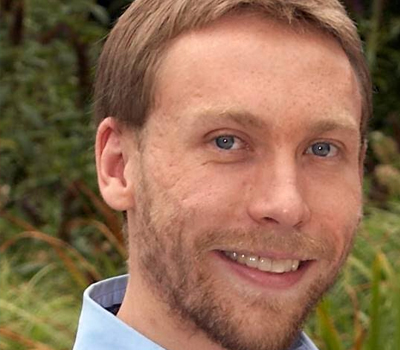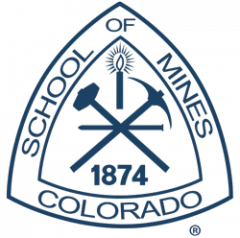Using abundant elements to create sustainable energy sources for our future
More than 85% of the world's current energy needs are met through fossil fuels such as coal, oil, and natural gas. Therefore, the demand for sustainable energy sources is a necessity for our future. Dr. Ryan O'Hayre, professor at the Colorado School of Mines, has a vision to create tomorrow's clean energy technologies for a greener planet. His research centers around energy materials, emphasizing aspects of electronic and ionic oxides, catalysis, fuel cells, and electrochemistry. Dr. O'Hayre's philosophy of using the most abundant and affordable materials allows him to create innovative and more efficient technologies that will one day provide a cleaner source of energy.
The utilization of elements that are naturally more abundant and therefore less expensive, allows new energy materials to one day impact households nationally as his technologies will replace technologies currently used. In addition, once commercialized, his innovative research will have sweeping applications including more efficient power, transportation, and heating. This unique approach to energy technologies makes Dr. O'Hayre's research critical in sustainable development and will create a world that is healthier, cleaner, and more sustainable for generations to come.
Current research topics in Dr. O'Hayre's lab include:
-
Making cheaper catalysts: Many existing catalysts are based on platinum which is a very costly material. In a project sponsored by the Army Research Office, Dr. O'Hayre found that mixing carbon and nitrogen, two of the cheapest and most abundant elements in the universe, with platinum, allows platinum to become more efficient. Therefore, he is researching what is the best combination of nitrogen and carbon to magnify catalytic performance and durability.
-
High-efficiency fuel cells: Dr. O'Hayre is leading a team funded by ARPA-E (part of the Department of Energy) to develop high-efficiency, medium temperature fuel cells that can produce electricity for natural gases. Their innovative ceramic fuel cell conducts protons and operates as a more friendly 400-500 oC compared to existing ceramic fuel cells that conduct oxygen ions and operate at 800-1000 oC. It also uses a new low-cost manufacturing path that reduces the number of ceramic processing steps required to make the fuel cell from 9 to 2. Dr. O'Hayre and his team are addressing three opportunities for this new fuel technology: lowering the cost, lowering the temperature, and designing a fuel cell that can operate on a variety of fuels. If successful, his technology will replace the water heater in homes with a similarly-sized fuel cell unit that could provide both electricity and hot-water with an overall combined efficiency of more than 80%.
-
Splitting water with thermal energy: Dr. O'Hayre is hoping to use the abundant and low-cost solar heat to make renewable hydrogen as a future transportation fuel. Through the development of new materials that can split water into hydrogen and oxygen using thermal energy from the sun, Dr. O'Hayre is two years away from demonstrating feasibility in a small scale solar reactor. He is working with a team from Sandia National Laboratory who have plans to scale the technology to industrial sizes using a solar power tower concept.
Bio
Ryan O'Hayre is a professor of metallurgical and materials engineering at the Colorado School of Mines. He received his B.S. (1999) in metallurgical and materials engineering from the Colorado School of Mines, and his M.S. (2001) and Ph.D. (2004) degrees in materials science and engineering from Stanford University.
His research centers on energy materials, emphasizing aspects of electronic and ionic oxides, catalysis, fuel cells, and electrochemistry. O'Hayre has received several young-investigator research and teaching awards including the Presidential Early Career Award in Science and Engineering (PECASE) from the U.S. White House/Army Research Office and the ASM Bradley Stoughton Award for Young Teachers from ASM International. He has been an active member of MRS since his graduate school days, where he worked with a team of students to start Stanford's MRS University Chapter. He has since served as symposium co-organizer for both MRS and E-MRS meetings, as an MRS Bulletin Volume Organizer in 2009, and as a 2011 MRS Spring Meeting Chair.
Dr. O'Hayre was inspired to be a researcher because of his desire for a clean planet powered by inexpensive, abundant, environmentally friendly sources of energy. His love of teaching students about science, and getting them excited to make a difference in the world, in addition to working with top scientists, postdocs, and Ph.D. students at the National Renewable Energy Laboratory, encourages Dr. O'Hayre to continue his work.


